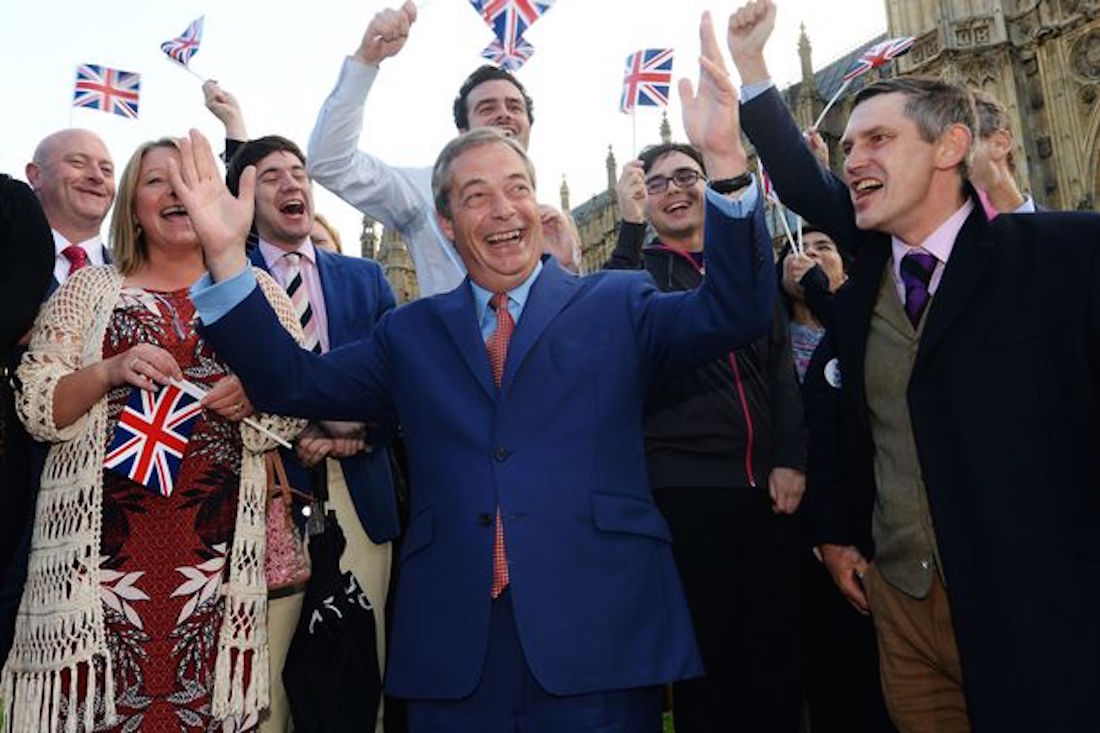WASHINGTON–Great Britain’s decision to leave the European Union caused that nation’s currency to tumble and many to fear how Europe would move forward, but libertarians say Brexit may provide the U.K. with new, more globally-focused economic opportunities.
Theodore Bromund, a research fellow in Anglo-American relations at the Heritage Foundation, said Brexit–short for “British exit”–will benefit Britain’s economy and improve investment and trading opportunities.
“Brexit wasn’t a vote against globalization, it was a vote against specific policy and actions that were extremely unpopular,” Bromund said.
Iain Murray, vice president for strategy at the Washington-based Competitive Enterprise Institute, also sees the glass as half full. Brexit, he said, “presents the greatest dangers, but it also presents the greatest opportunities.”
“The new ministry should set out the vision of an open and welcoming Britain founded on principles of free trade and free enterprise that will attract investment from the rest of the world,” Murray said.
Libertarian ideology champions free trade and free markets. But many libertarians are optimistic in the wake of Brexit, arguing that Britain can use its new-found independence to develop a globally-focused free trade policy of its own.
Libertarian economists gathered for a panel discussion at the Heritage Foundation on Wednesday, at a time when Brexit is intersecting with the presidential campaign.
On Wednesday, Nigel Farage — arguably the main voice of the Brexit movement — spoke at a Donald Trump campaign rally in Mississippi, where he said, “if the real people are prepared to stand up and fight for what they believe in, we can overcome the big banks, we can overcome the multinationals.”
Trump has voiced support for Brexit, saying the day after the referendum, “They took their country back, just like we will take America back.”
Murray co-authored an article for the Competitive Enterprise Institute with fellow panelist Rory Broomfield, examining Britain’s next steps in leaving the EU. Broomfield argued for the positive economic impacts that would stem from implementing an immigration tariff system.
Such a system would bring a market-based approach to immigration that Broomfield argued would be more effective than the current discretionary, point-based system.
“Ultimately we want to generate a system where the best people from around the world who want to come to Britain can come to Britain,” said Broomfield, director of the Britain-based Freedom Association.
A significant argument in the “remain campaign” was that Britain would obtain better trade terms because of the EU’s size. Now, the post-Brexit U.K. needs a new trade deal with the EU, which could result in new tariffs on British goods and services.
Broomfield, however, argues there are economic opportunities through a free-market approach to sectors such as agriculture.
“The world is in protectionist throw when it comes to the agriculture sector, and a free market approach that embraces globalism and trade will generate more foreign direct investment,” he said.


